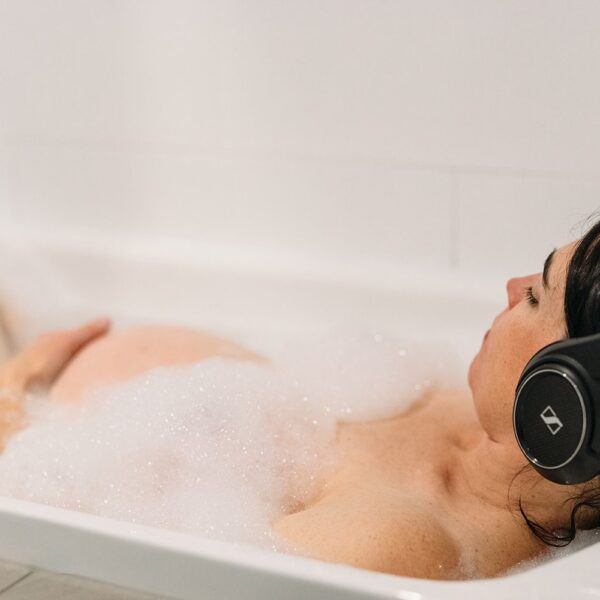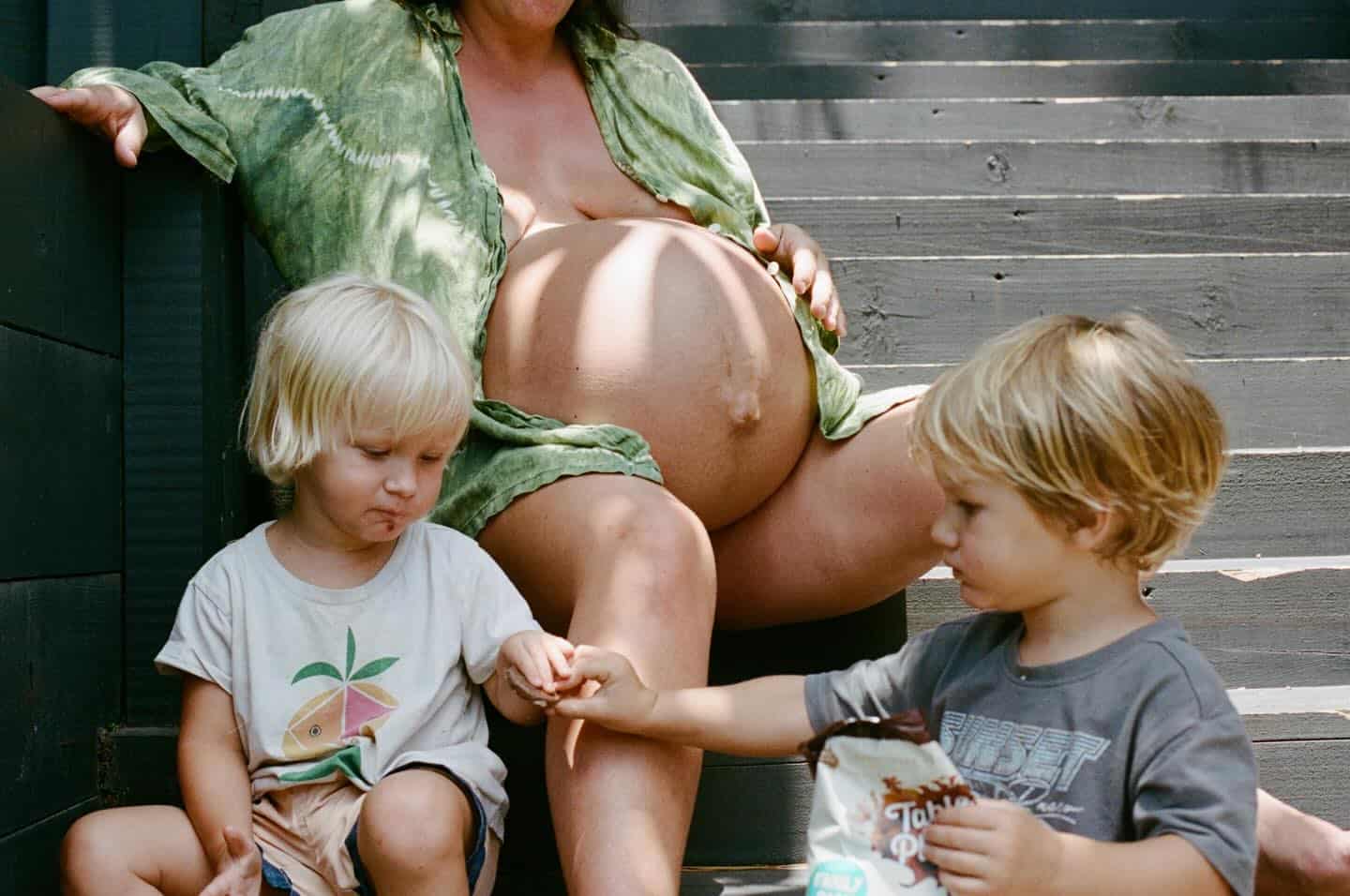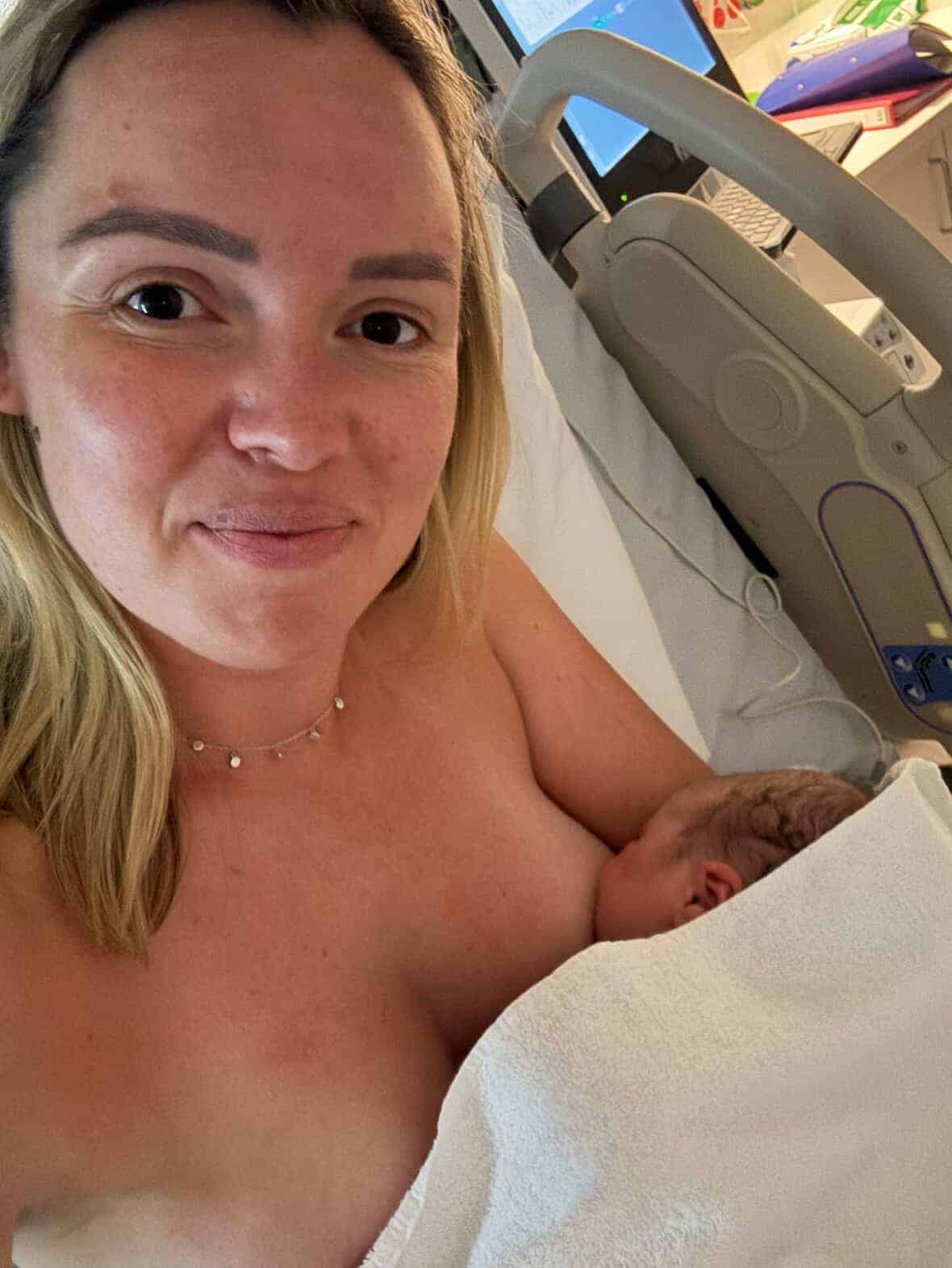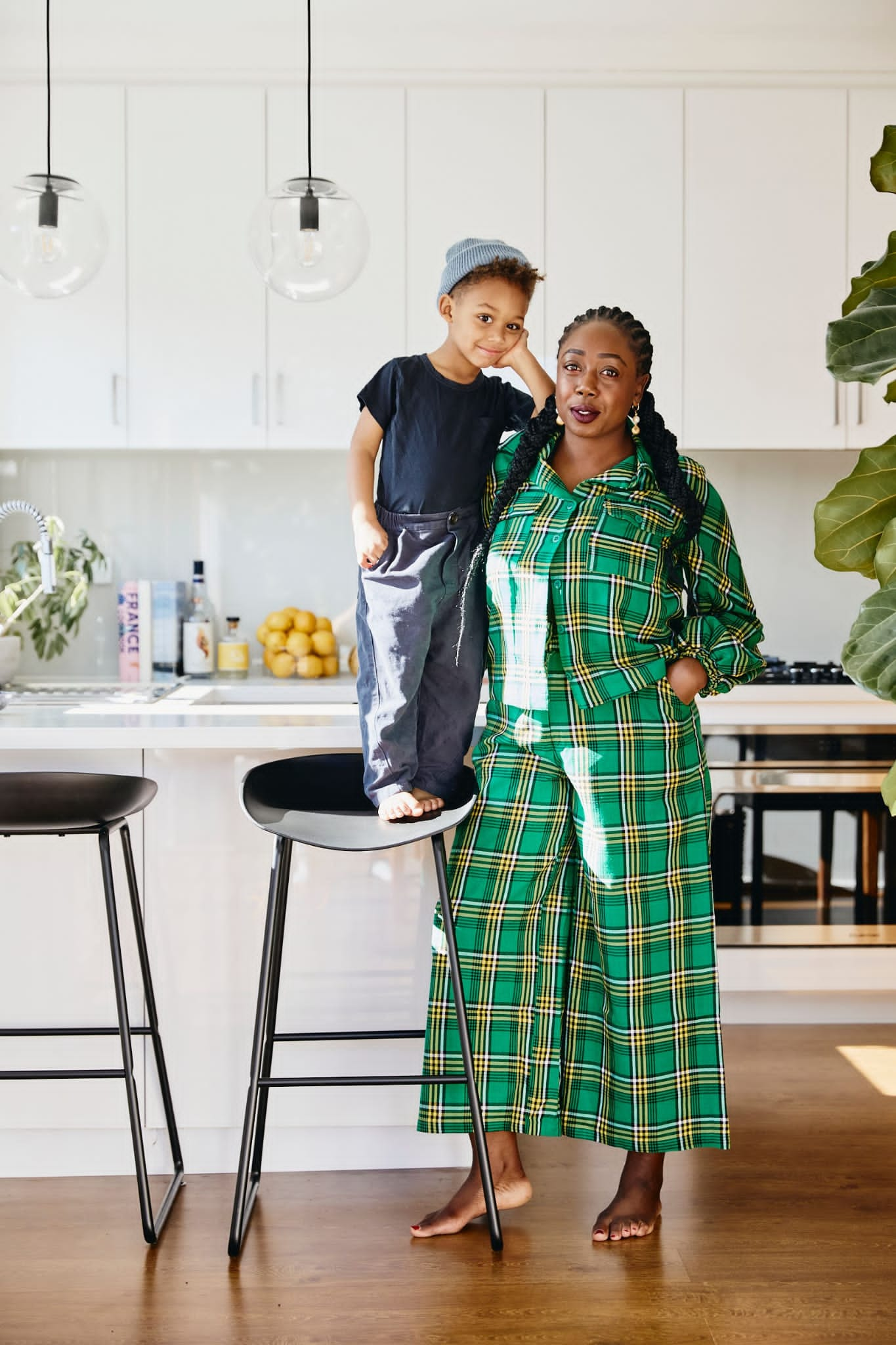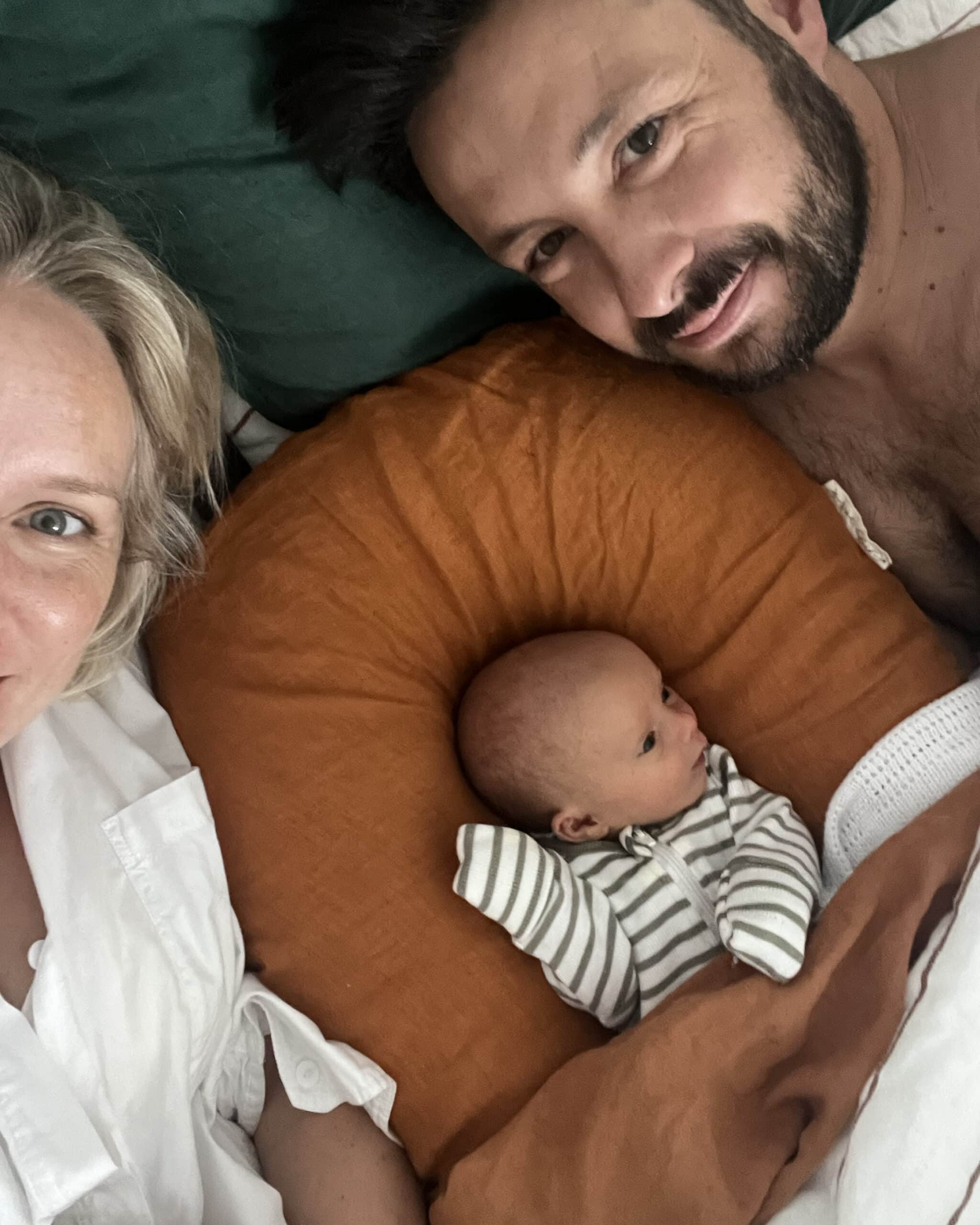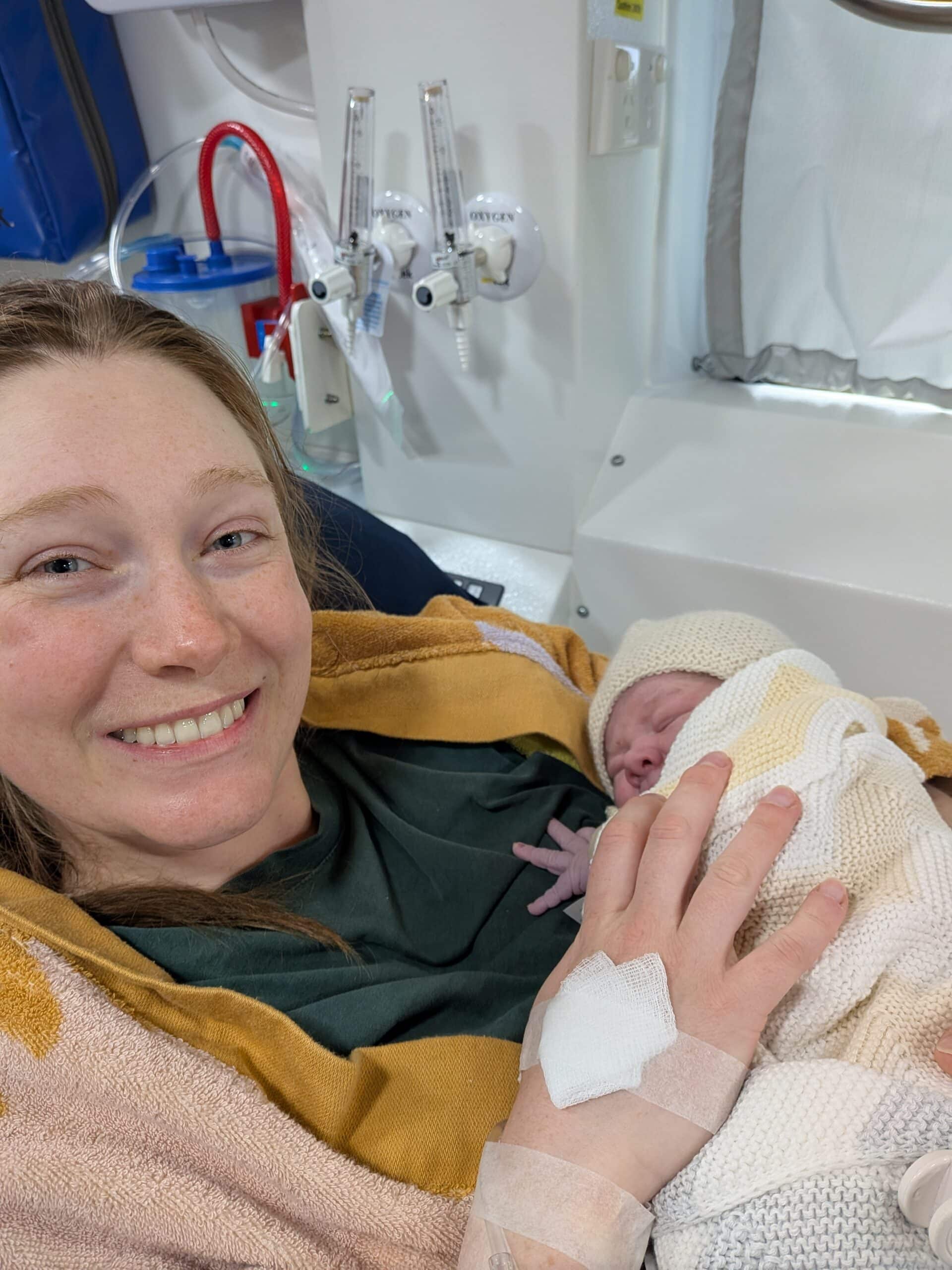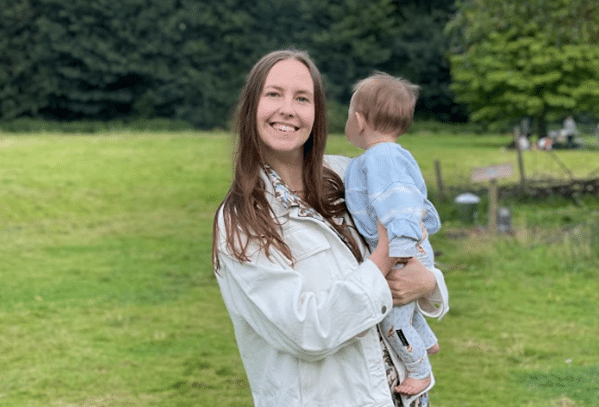Podcasts Theresa
EPISODE 275
Theresa

“Being told a due date….I’m not sure it’s very helpful for a lot of people, or at least not for me. The fourth of June became my whole world; the fourth of June came and went and there was still no baby. My mum lives in Singapore and had been with us for a month before Mason arrived. Eventually I needed an induction at 41 weeks. I was told it was what was going to happen and I went along with it but I now know that I should have been given options.
My contractions started within 10 minutes of having the cervical gel applied. They came on hard and fast for quite a long time before I told the midwife but after four hours I was only 2cm. We were left on our own for a big chunk of time and I think we were nervous to ask for help but by 19hours post induction I was 4cm and I just broke down and asked for the epidural. Three hours later the trace indicated that my contractions had slowed down and the obstetrician – who I had never met – came into the room, told me my baby was in distress and she scheduled a caesarean. The whole labour was blurry and Luke and I felt very alone, we were just hanging in there by ourselves.
Theresa admits that it took her a few months to come to terms with her birth; she was grateful for a healthy baby but also quite confused and defeated by how quickly her labour and birth had escalated. Her milk took over 5 days to come in but she was persistent and she established a beautiful breastfeeding rhythm with baby Mason.
Although she was hesitant at first to embrace the traditional practice of rest after birth, she now understands how important it is and how lucky she’s been to have her mother sweep in and care for her and her family.
“We practice confinement in Chinese culture, some people refer to it as the golden month or the first forty days. For a full moon cycle, I do nothing but rest. My only job is to lie down and feed the baby. You have to be horizontal for as much as you can during those thirty days so your uterus and pelvic floor can heal. I attribute my good recovery to that. Mum does everything around the house; all the cooking, cleaning, washing – everything.
“In between Mason and Noah I had a miscarriage at 11 weeks. Before kids, I had 37-40 day cycles but after the miscarriage, it kick-started a very regular 28-day cycle. It took us nine months to conceive but we weren’t stressed about it. When I found out I was pregnant I very actively chose to go with a different care provider because the private system definitely didn’t work for us. We went public with obstetric and midwifery care because I was considered high risk because I was intending to have a Vaginal Birth After a Caesarean (VBAC). I didn’t realise my first birth was traumatic until on reflection I realised that I would never want to experience that again.
“Noah was born on his due date. I went into labour the night before; it was a slow start with an hour between contractions. The midwives told me it was normal, especially considering I had never experienced spontaneous labour. The next afternoon I arrived at the hospital and after an internal examination, they told me there wasn’t much happening and that I could go home but I requested to stay. I laboured for twelve hours before I asked for an epidural and then I had a five-hour nap. My midwife, Lynne who I adored, told me I was 10cm and she told me it was time to push him out and I just burst into tears from joy, that I was going to get my VBAC. I couldn’t feel anything but I pushed for an hour and a half and his little hand was next to his face for four minutes, between worlds, before his body was born. It was so lovely knowing that we weren’t going to be separated, that he was on my chest and could just stay there. He fed immediately and our breastfeeding journey was so easy.
“Culturally, I feel a shift is happening in Australia. I did worry that my postpartum experience would be considered a weird Chinese superstition but it’s since been embraced with many birth and postpartum workers dedicated to educating pregnant women about its importance and relevance. My mother gets giggles when I explain to her how often people want to know what she’s done for me in my postpartum days. She’s both embarrassed (that anyone even thinks it’s worth mentioning) and excited to know that more women will be held in their vulnerable time. We are both in awe of how much women actually want this. It feels like the reception has been so accepting.
“We fell pregnant on the first go with Remy and of course everyone thought we were trying for a girl which is so odd, people presuming we would be lost without a daughter. I’d always had a vision of having three sons. I vomited a lot more in Remy’s pregnancy, right up till 19 weeks.
“We were living on the Gold Coast so I saw my GP and I booked into Gold Coast University Hospital and I was assigned to Annaleise who is known as a VBAC warrior. She just got me and she understood exactly what I wanted and what I was comfortable with and we were on the same level with parenting. I saw her the whole time, it was the first time I’d experienced continuity of care. I didn’t realise how important it was until I had it.
“A few days before my due date my waters broke while I was in bed. I could hear and feel the pop and it was the craziest feeling; there was water everywhere and we were just laughing. I rang the hospital and because I had a caesarean previously they told me it was hospital protocol to go in for monitoring. I was disappointed because I wanted some time at home. I wasn’t contracting so I pottered around at home, got my esky for my placenta and drove there and arrived just before midnight. We were watching Netflix and I felt my first contraction and five minutes later I had one that took all of my attention. Thirty minutes later I asked Luke to get the midwife and they moved us to the birth suite and I was leaning over the bed and they were coming in hard and fast. I looked up and saw her turn on the lights for the baby bed and she put a towel on the floor. I had asked for no vaginal examinations in my birth plan and my midwife knew that. I had no plans for an epidural-free birth but I just couldn’t believe it was happening.
“She asked me to get on the bed because I had a cervical lip and my midwife needed to move it. I started pushing and it got to the stage where I could feel him come out and slide back in and it was so defeating. I birthed him at 2am; it was so fast and my most amazing birth experience. Birth or life experience, it was the most amazing thing I’d ever done. It was such a great way to close my chapter of having babies.”
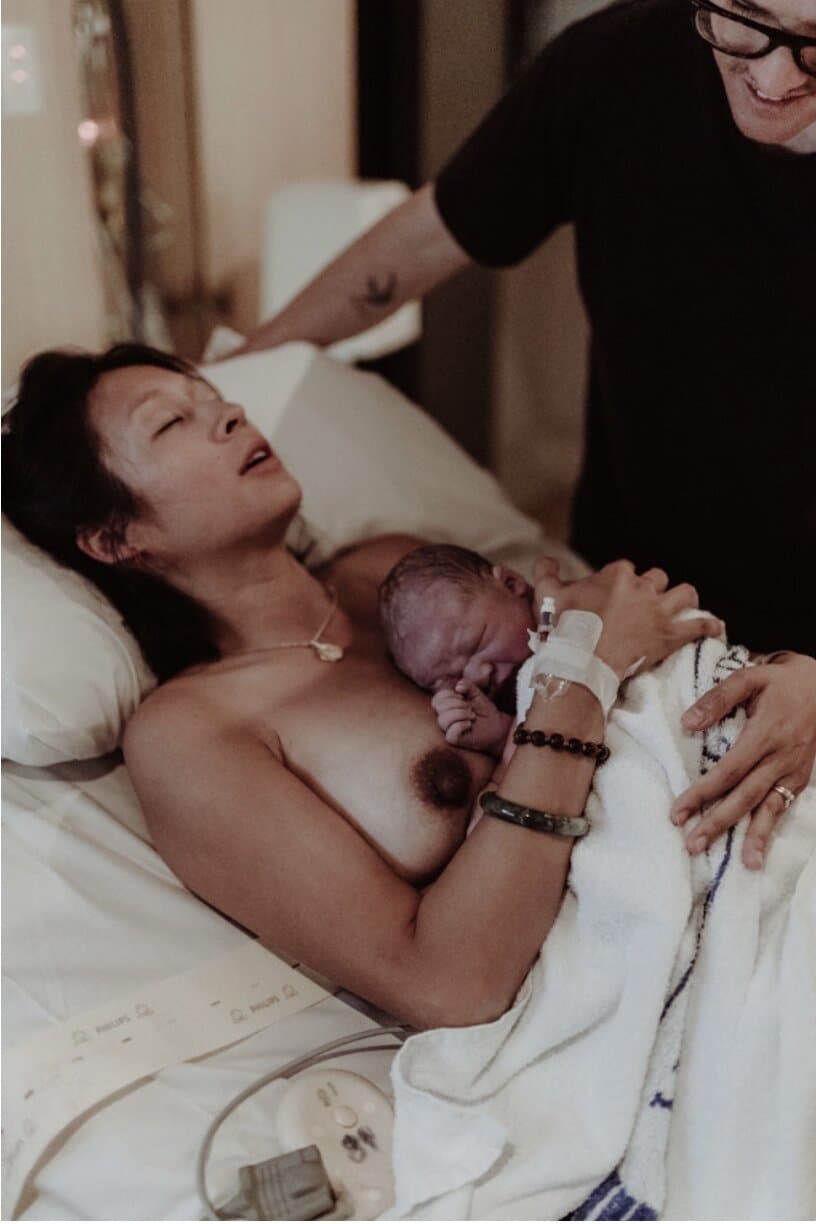
Image by Olive Juice Lifestyle Photography

Image by Olive Juice Lifestyle Photography

Image by Olive Juice Lifestyle Photography

Image by Olive Juice Lifestyle Photography

Image by Olive Juice Lifestyle Photography
Topics Discussed
Emergency caesarean, Three births, Traditional Chinese confinement, Vaginal birth after caesarean (VBAC)
Episode Sponsor
Today’s episode is brought to you by Modibodi. Voted the #1 Period & Incontinence Underwear Brand. I love my Modibodi undies and I’m excited to share their NEW maternity and postpartum collection. I love the flexibility of sticking on my Modibodi undies when I’m not quite sure when my period is coming since my cycles return post-birth. They’re also a fantastic alternative to other products on the market if you are suffering from a prolapse!
The new range includes their Breastfeeding Bra and Cami with moulded cups that absorb milk so you can wear it without any disposable breast pads at all. The best bit is both look and feel like your favourite everyday staples and give you a great shape and support without feeling too structured. The bra and cami both have all your favourite features like easy feeding clips, adaptable sizing and secret support, plus they’re wire-free so you can wear them to bed whenever you can sneak in a nap. You can wear their Maternity Brief for post-partum bleeding – a great idea for your hospital bag and your first few weeks at home. Providing a sustainable and comfortable alternative to disposable pads, tampons, nappies and breast pads, Modibodi products are made from premium fabrics and are designed by an Aussie mum of four with plenty of experience with nappy changes, breastfeeding, bleeding and bladder leaks after birth.
Ready to ditch the disposable maternity pads, wasteful nappies and soggy breast pads once and for all? Use the code AUSBIRTH15 to get 15% off your order at Modibodi.com – min order $100 excludes sale items, bundles, Maxi-24hrs and gift cards.
Categories
Related Products
-
Birth Meditations
$49.00Narrated by Sophie Walker, these soothing and informative meditations help you feel supported and confident around birth.
Join the conversation
Sign up to get the latest updates, freebies, podcast releases straight into your inbox
@AustralianBirthStories
Follow along with us
@AustralianBirthStories
Follow along with us
@AustralianBirthStories
Follow along with us
@AustralianBirthStories
Follow along with us
@AustralianBirthStories
Follow along with us
@AustralianBirthStories
Follow along with us
@AustralianBirthStories
Follow along with us
@AustralianBirthStories
Follow along with us
@AustralianBirthStories
Follow along with us
@AustralianBirthStories
Follow along with us
@AustralianBirthStories
Follow along with us
@AustralianBirthStories
Follow along with us
